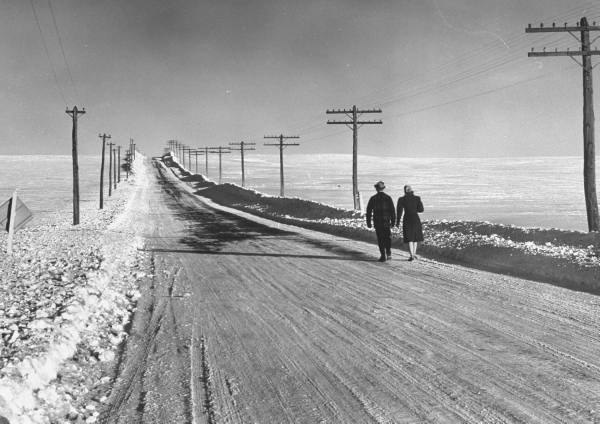So I read this article the other day about how the ideal of
the home-cooked meal is becoming a major burden for working mothers.
And—even if
I only work part time—I get it. I’ve been concerned about the difficulties
facing low income families (especially with single-parent households) for a
while. But I’m worried that the truly dramatic burdens facing some households
are being used to justify a different kind of burden that other, more fortunate
women are facing. In this piece, the phrase that stuck out was, “time pressures, tradeoffs to save money, and
the burden of pleasing others make it difficult for mothers to enact the
idealized vision of home-cooked meals advocated by foodies and public health
officials.” Advocated by foodies? Say what?
Enter the real problem: the
idealized version of the family meal. So it's a choice between fantasy and nada.
I try to keep some balance when it comes to food
discussions. I am sort of a foodie (ugh). I really love trying new things—whether
I’ve made them or someone else has. I love to cook. I love to eat. I love
anything to do with food—consuming it, thinking about it, smelling it, planning
it. But I also live in reality. A reality that includes 5 children under 12, a
husband who hates anything very strong or pungent or spicy or any shellfish
that requires work…and kids who change their minds about what they like. And I
know not everyone is into food like I am.
I have many good friends who are stay-at-home moms but find the task of cooking meals for their family totally overwhelming. And it
makes me unbelievably sad that, as a culture, we have time to teach our kids to play
soccer and take dance and music lessons but learning how to cook and enjoy food
is too hard. (It tempts me to go off on a rant on our Puritanical culture but I’m
trying to stay off that soapbox….)
So, let’s forget about the foodie expectations. Let’s forget
the idealized image and shoot for something that tastes good enough to eat,
that doesn’t take forever (or can be done in advance in family-friendly way),
and that doesn’t cost a fortune, and that’s generally good for you. If you look
back to cookbooks from the 50’s and 60’s (and who does?—they rarely have
enticing pictures), you’ll see that A LOT of the recipes include a can of this,
or a can of that. Lots of those meals depended on basic ingredients and
preserved items of various kinds. Not all the burden was on the mom to produce
instant magnificence—even if she was the stay at home sort. Growing up, my
mother always cooked, even though she had a full-time job throughout my
childhood. I am very grateful that my mom was always a good cook, but never a gourmet cook. It made it clear that making food was something we could all do.
One of the real problem facing moms today (unlike our own mothers) is
that we’re competing for our families’ attention when it comes to food (since
outside food is so readily available to them) and that we have raised our own
expectations too high. But, trust me, if you cut off that access to other food,
kids still get hungry just like they used to. (In my family, there is some sort
of dessert every night—absurd as that is. But it’s amazing what most kids will
eat if they understand that not finishing their regular food means no dessert).
And they will eat the food we make—especially if we make some effort to make it
good. Which is much, much easier than we tend to think.
Lest anybody think I’m all talk, here are a few ideas:
--Marinade your meat. It works wonders. If you have no ideas,
try ranch dressing. Or teriyaki. Grill your meat after you’ve marinated it.
If that’s too hard, get one of those George Foreman indoor grills. You can get
them used really cheap, too.
--Try a slow cooker. Not expensive, and you can cook
something so it gets all saucy all day long. Pulled pork is great in, as are a
ton of other things
--Cook your quinoa/rice/other grains in chicken broth. Or
add some Parmesan cheese to it. Or some
nuts.
--Roast your vegetables: broccoli, potatoes, carrots,
whatever. My children starting loving cauliflower (!!) after I started roasting
it with a little oil and salt. Or if buying fresh veggies is too tough, buy
them frozen and steam them. Then add breadcrumbs.
--Explore pasta options that include protein. Sausage with
broccoli (or broccoli rabe if anyone will eat it. My brother was even willing
to eat kale this way) is great. Salmon and peas (try it with a pink sauce—get jar
marinara, heat and add a little cream. If you can cook a little garlic in oil
before you start, that’s even better. Or add a little wine. Or a little
parmesan. But even just tomato+ cream is a winner even by itself).
If cooking at home still seems too hard, start small and
slow. Make dinner once a week. Or make some part of dinner once a week. See if you
can find a way to actually enjoy it- find something you know how to make that
your family likes. Try making things you know someone loves, and let it grow
from there. Because, as I have seen time and time again with my family, people
learn to like things if we’re bold enough to keep trying them.
Yes, we can!









